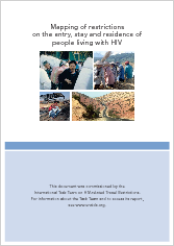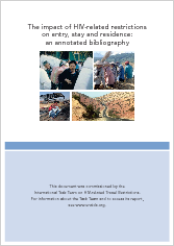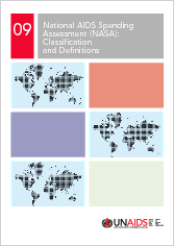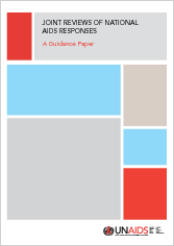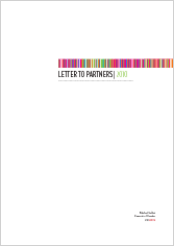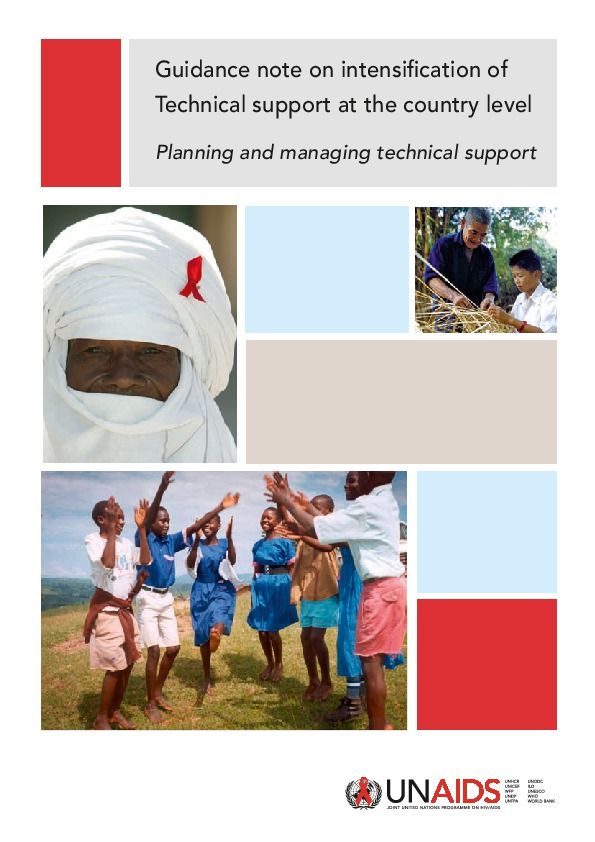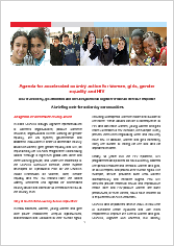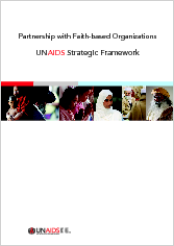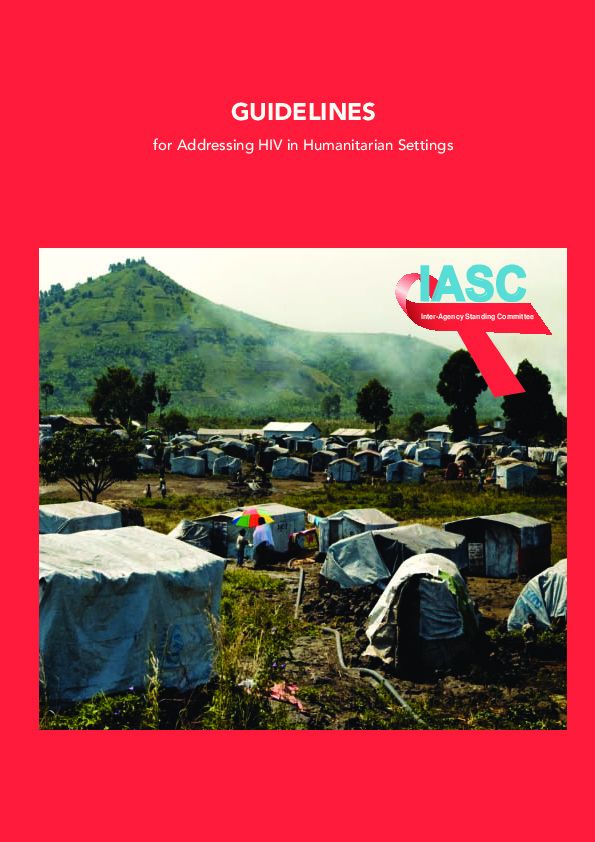Documents
The impact of HIV-related restrictions on entry, stay and residence: personal narratives
18 August 2009
The impact of HIV-related restrictions on entry, stay and residence: an annotated bibliography was commissioned by the International Task Team on HIV-related Travel Restrictions. The Task Team was established by UNAIDS in January 2008 as an advisory/technical group whose role was to galvanize attention to such restrictions on national, regional and international agendas, calling for and supporting efforts towards their elimination. The principles of non-discrimination and the greater involvement of people living with HIV/AIDS Principle formed the core of the Task Team’s work and provided the context in which its efforts were set.
Documents
The impact of HIV-related restrictions on entry, stay and residence: an annotated bibliography
18 August 2009
The impact of HIV-related restrictions on entry, stay and residence: an annotated bibliography was commissioned by the International Task Team on HIV-related Travel Restrictions. The Task Team was established by UNAIDS in January 2008 as an advisory/technical group whose role was to galvanize attention to such restrictions on national, regional and international agendas, calling for and supporting efforts towards their elimination. The principles of non-discrimination and the greater involvement of people living with HIV/AIDS Principle formed the core of the Task Team’s work and provided the context in which its efforts were set.
Documents
Joint reviews of national AIDS responses: a guidance paper
13 November 2009
This Paper sets out the rationale for JointReviews. It underlines the principles that should govern these reviews, outlines their scope and objectives, and the links to other HIV-related review processes. Specifically, it offers broad guidance for planning, implementing, and following up on joint reviews that can beadapted and tailored to different contexts.
Documents
Letter to partners 2010: Michel Sidibé, Executive Director, UNAIDS
16 February 2010
This letter comes to you from Swaziland, where I just visited a Family Life Association clinic. This integrated clinic brings together family planning, antenatal care, maternal and child health services, prevention of mother-to-child transmission of HIV services and HIV counselling and testing, along with access to antiretroviral therapy. In the near future, I hope to see many more examples of integrated approaches to HIV.
Documents
Guidance Note on Technical Support Planning at the Country Level
08 March 2010
Documents
Agenda for accelerated country action for women, girls, gender equality and HIV: How civil society, governments and the UN system can together create an effective response A briefing note for action by communities
12 March 2010
The agenda for accelerated country action provides guidance for UN agencies at the country level (UN joint teams on AIDS) on actions to be taken in collaboration with governments, civil society and development partners to make national AIDS policies and programmes more responsive to the specific needs, and more protective of the rights, of women and girls.
Documents
Guidelines for Addressing HIV in Humanitarian Settings (2010 revision)
09 April 2010
In 2004, the Inter-Agency Standing Committee (IASC) issued the guidelines Addressing HIV/AIDS Interventions in Emergency Settings to help guide those involved in emergency response, and those responding to the epidemic, to plan the delivery of a minimum set of HIV prevention, care and support interventions to people affected by humanitarian crises. This revised version of the guidelines, Addressing HIV in Humanitarian Settings, draws on the experiences of governments; UN, inter-governmental and nongovernmental organizations; and the Red Cross Red Crescent movement; and on recent developments in the field.

